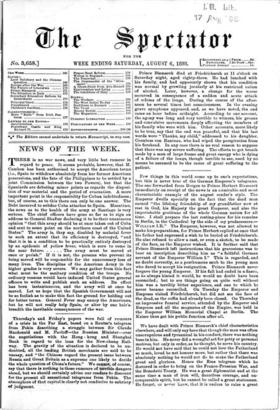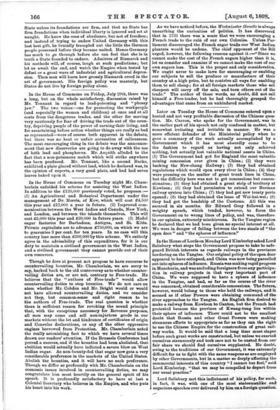We have dealt with Prince Bismarck's chief characteristics elsewhere, and
will only say here that though the man was often unscrupulous and tyrannical in his conduct, there was nothing base in him. He never did a wrongful act for petty or personal motives, but only in order, as he thought, to serve his country. He would not have said that he could not love the Fatherland so much, loved he not honour more, but rather that there was absolutely nothing he would not do to make the Fatherland great and glorious. Hence the Ems telegram which he doctored in order to bring on the Franco-Prussian War, and the Benedetti Treaty. He was a great diplomatist and at the same time a man of iron will, dauntless courage, and un- conquerable spirit, but he cannot be called a great statesman. He forgot, or never knew, that it is useless to raise a great
State unless its foundations are firm, and that no State has firm foundations when individual liberty is ignored and set at naught. He knew the uses of obedience, but not of freedom; and instead of trying to endow United Germany with this last best gift, he brutally trampled out the little the German people possessed before they became united. Hence Germany has much to go through before she can feel that she is in truth a State founded to endure. Admirers of Bismarck and his methods will, of course, laugh at such predictions; but let us await the end, and watch the Empire when tested by defeat or a great wave of industrial and agricultural depres- sion. Then men will learn how grossly Bismarck erred in the art of government. His foreign policy was masterly, but States do not live by foreign policy alone.



































